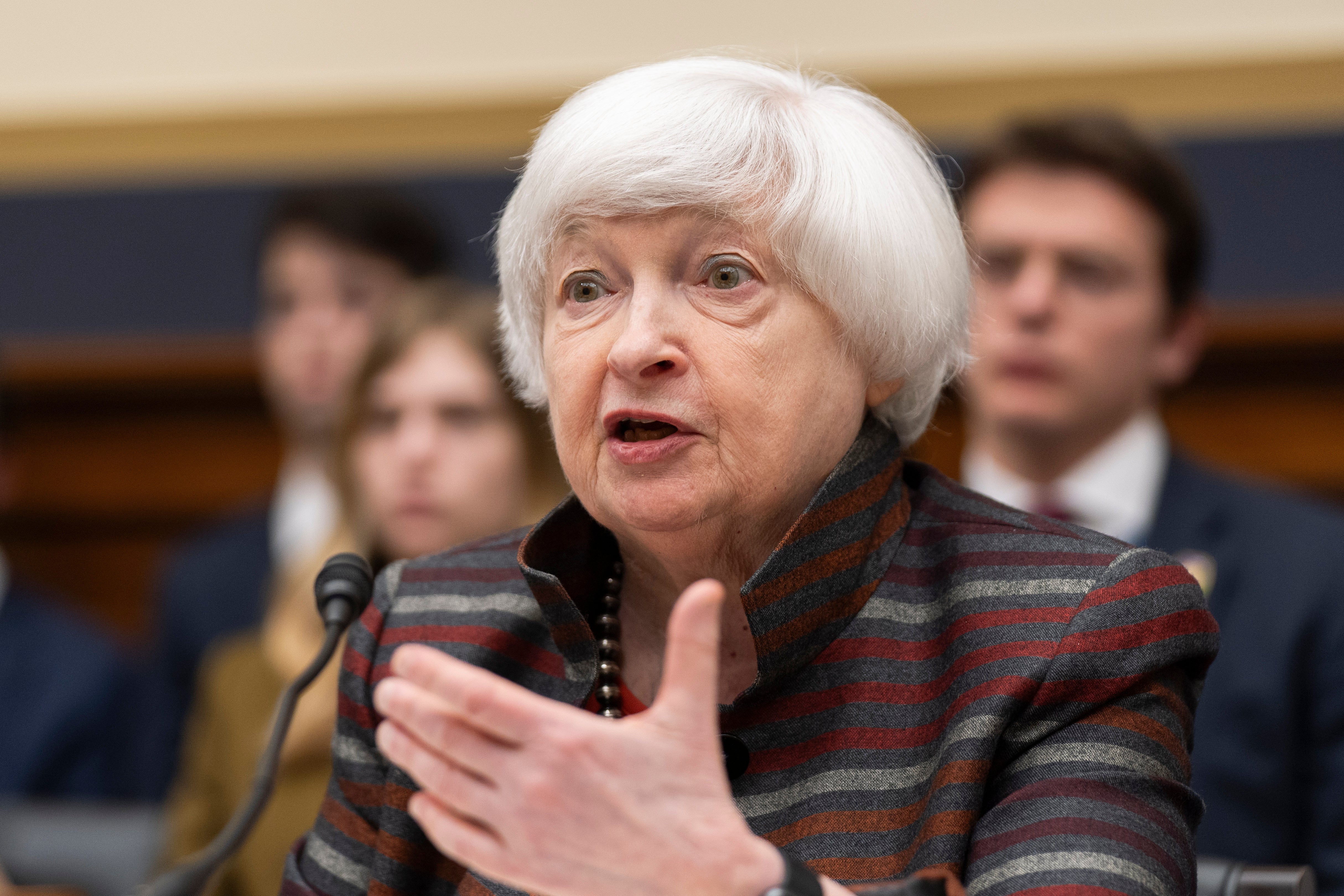Yellen urging world leaders to 'unlock' frozen Russian Central Bank assets and send them to Ukraine
Treasury Secretary Janet Yellen is offering her strongest public support yet for the idea of liquidating roughly $300 billion in frozen Russian Central Bank assets and using them for Ukraine’s long-term reconstruction

Your support helps us to tell the story
From reproductive rights to climate change to Big Tech, The Independent is on the ground when the story is developing. Whether it's investigating the financials of Elon Musk's pro-Trump PAC or producing our latest documentary, 'The A Word', which shines a light on the American women fighting for reproductive rights, we know how important it is to parse out the facts from the messaging.
At such a critical moment in US history, we need reporters on the ground. Your donation allows us to keep sending journalists to speak to both sides of the story.
The Independent is trusted by Americans across the entire political spectrum. And unlike many other quality news outlets, we choose not to lock Americans out of our reporting and analysis with paywalls. We believe quality journalism should be available to everyone, paid for by those who can afford it.
Your support makes all the difference.Treasury Secretary Janet Yellen is offering her strongest public support yet for the idea of liquidating roughly $300 billion in frozen Russian Central Bank assets and using them for Ukraine's long-term reconstruction.
“It is necessary and urgent for our coalition to find a way to unlock the value of these immobilized assets to support Ukraine’s continued resistance and long-term reconstruction,” Yellen says in remarks prepared for delivery Tuesday in Sao Paulo, Brazil, where Group of 20 finance ministers and central bank governors are meeting this week.
“I believe there is a strong international law, economic, and moral case for moving forward. This would be a decisive response to Russia’s unprecedented threat to global stability," she says.
The United States and its allies froze hundreds of billions of dollars in Russian foreign holdings in retaliation for Moscow’s invasion of Ukraine. Those billions have been sitting untapped as the war grinds on, now in its third year, while officials from multiple countries have debated the legality of sending the money to Ukraine. More than two-thirds of Russia’s immobilized central bank funds are located in the EU.
Using the assets to help Ukraine “would make clear that Russia cannot win by prolonging the war and would incentivize it to come to the table to negotiate a just peace with Ukraine,” Yellen says.
The idea of using Russia’s frozen assets has gained traction lately as continued allied funding for Ukraine becomes more uncertain and the U.S. Congress is in a stalemate over providing more support. But there are tradeoffs since the weaponization of global finance could harm the U.S. dollar’s standing as the world’s dominant currency.
Earlier this month, the European Union passed a law to set aside windfall profits generated from frozen Russian central bank assets. Yellen calls that “an action I fully endorse.”
Brazil kicked off its presidency of the Group of 20 nations this month, with finance ministers meeting this week. Topics for discussion include poverty alleviation, climate change and the wars in the Gaza Strip and in Ukraine. G20 leaders are slated to gather at a Nov. 18-19 summit in Rio.